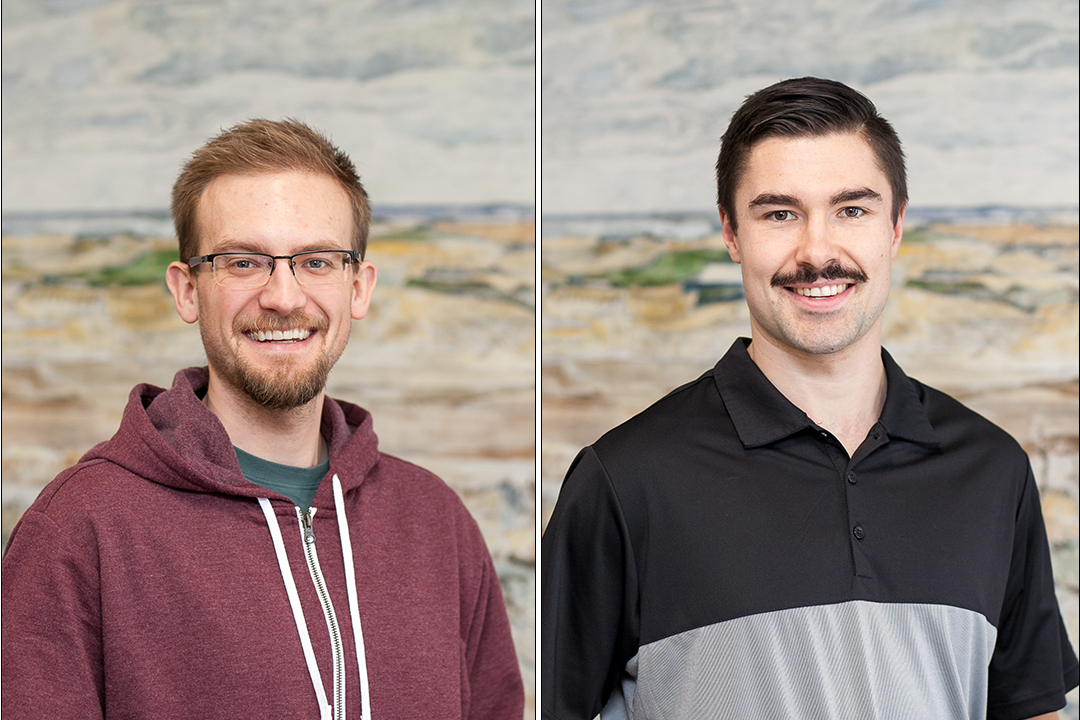
WCVM students achieve success at university’s annual research expo
After a cancellation in 2020 due to the COVID-19 pandemic, the University of Saskatchewan (USask) Life and Health Sciences Research Expo returned virtually on May 6, 2021.
By Jessica ColbyA total of 85 student projects were presented at the expo that highlighted interdisciplinary health science research in clinical and basic sciences taking place across campus.
Other categories included best supervisor, best paper (in basic science, clinical science and social and population health) as well as first and second placements for each of the other subcategories (undergraduate research, basic science, clinical science and social and population health).
There were also additional research awards in the areas of interdisciplinary/interprofessional collaboration, Indigenous health research and COVID-19 pandemic research, response, and/or outreach.
Here is a list of the Western College of Veterinary Medicine (WCVM) winners for 2021 as well as a summary of each award-winning research poster.
Basic Science 3
Second place: Ivanna Kozii (mentor: Dr. Elemir Simko, WCVM Department of Veterinary Pathology)
Project title: “Are detoxification enzymes induced similarly across honeybee castes in response to neonicotinoid exposure?”
Summary: Neonicotinoid insecticides have been blamed in the declining health of honeybees and toxicity tests have only been performed on the worker bee caste, which overlooks the drone and queen bee castes. This study’s focus was to determine the correlation between detoxification enzyme activity and caste-specific sensitivity of honeybees to thiamethoxam, a commonly used neonicotinoid.
Basic Science 4
First place: Rory Marshall (mentor: Dr. Dylan Olver, WCVM Department of Veterinary Biomedical Sciences)
Project title: “Facing resuscitation head on: revisiting CPR guidelines to improve neurological outcomes”
Summary: Performing cardiopulmonary resuscitation (CPR) with standard chest compressions (SCC) does not take place over the largest area of the heart and only produces about 30 per cent of normal blood flow. This study used left ventricle chest compressions (LVCC), which take place over the largest part of the heart, during CPR on swine in cardiac arrest in attempt to increase blood flow to the brain.
Second place: Breanne Murray (mentor: Dr. Karen Machin, WCVM Department of Veterinary Biomedical Sciences)
Project title: “NMR fecal metabolomics: a novel technique for monitoring stress in waterfowl”
Summary: Stressors, such as anthropogenic and environmental changes, in waterfowl are expected to contribute to their decline. These stressors release corticosteroids (a stress hormone) and scientists need a better way to measure stress in birds. This technique could be through metabolomics, a process that studies small metabolites that participate in metabolic reactions, including those related to stress.
Clinical Science 2
First place: Michael Zabrodski (mentor: Dr. Elemir Simko, WCVM Department of Veterinary Pathology)
Project title: “Improving methods of control of American foulbrood in honeybees in Saskatchewan”
Summary: American foulbrood (AFB) is a disease of newly hatched honeybee larvae caused by Paenibacillus larvae that is similar to anthrax (Bacillus anthracis) in its extreme infectivity, prolificity and spore resiliency. Beekeepers are dependent on antimicrobials to treat AFB and the focus of this study is to find evidence-based tools to reduce the use of antibiotics while maintaining sustainable beekeeping.
Second place: Miranda Zwiefelhofer (mentor: Dr. Gregg Adams, WCVM Department of Veterinary Biomedical Sciences)
Project title: “Production of live calves after transfer of in vitro-produced embryos in synchronized wood bison (Bison bison athabascae)”
Summary: Wood bison are a species of great cultural significance to Canada’s First Nations peoples and an important part of their ecosystem. Unfortunately, they are also a threatened species in Canada. The focus of this study is to develop reproductive technologies in support of bison conservation and to identify factors.
Visit the USask Life and Health Sciences Research Expo web page to view all of the 2021 award recipients.
Jessica Colby of Montmartre, Sask., is a fourth-year student in the University of Regina’s School of Journalism. She is working as a research communications intern at the Western College of Veterinary Medicine (WCVM) for summer 2021.
